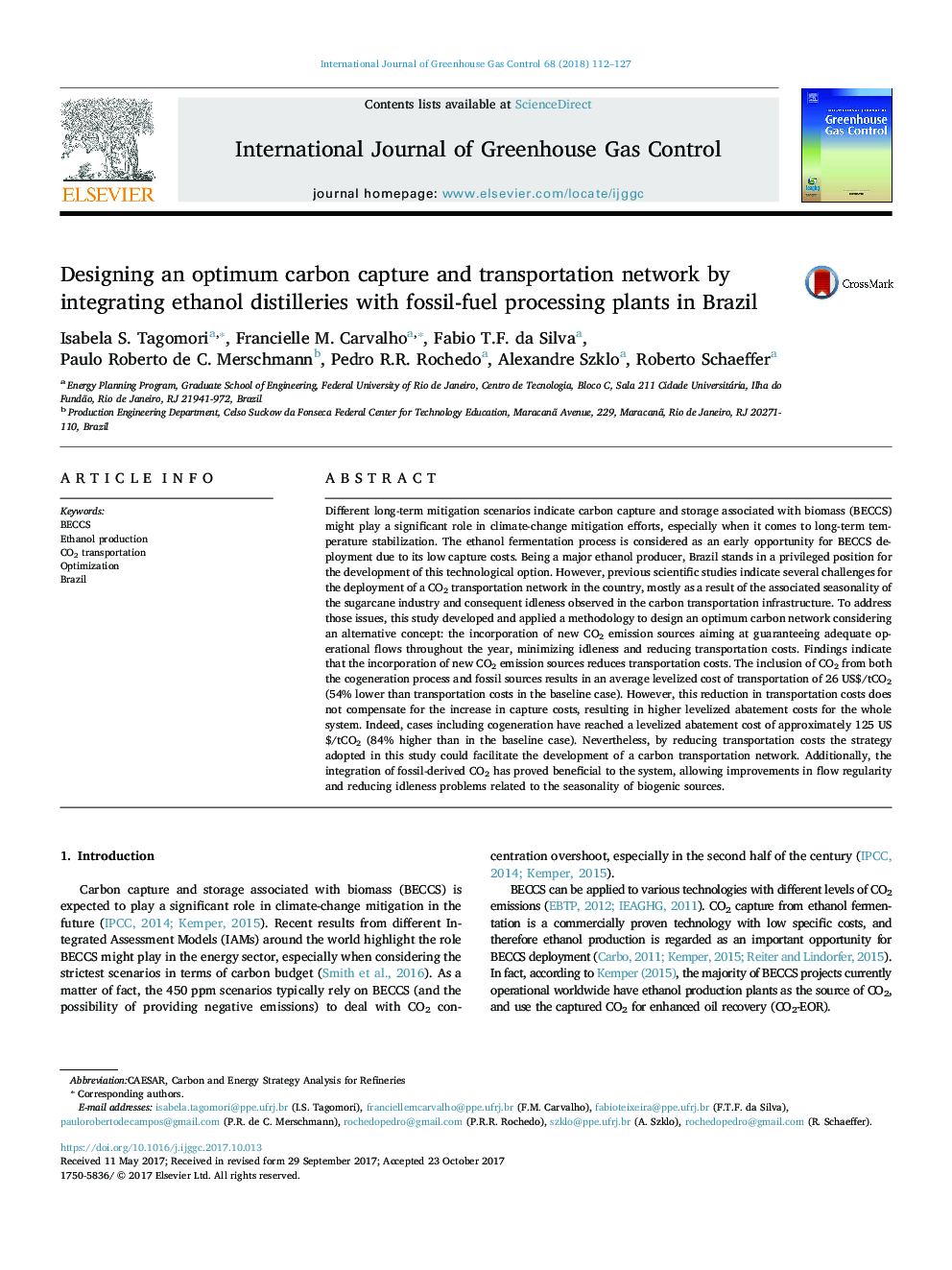| کد مقاله | کد نشریه | سال انتشار | مقاله انگلیسی | نسخه تمام متن |
|---|---|---|---|---|
| 8089759 | 1521951 | 2018 | 16 صفحه PDF | دانلود رایگان |
عنوان انگلیسی مقاله ISI
Designing an optimum carbon capture and transportation network by integrating ethanol distilleries with fossil-fuel processing plants in Brazil
ترجمه فارسی عنوان
طراحی یک شبکه جمع آوری کربن بهینه و شبکه های حمل و نقل با ادغام فرآورده های اتانول با کارخانه های فرآوری سوخت فسیلی در برزیل
دانلود مقاله + سفارش ترجمه
دانلود مقاله ISI انگلیسی
رایگان برای ایرانیان
کلمات کلیدی
موضوعات مرتبط
مهندسی و علوم پایه
علوم زمین و سیارات
فرآیندهای سطح زمین
چکیده انگلیسی
Different long-term mitigation scenarios indicate carbon capture and storage associated with biomass (BECCS) might play a significant role in climate-change mitigation efforts, especially when it comes to long-term temperature stabilization. The ethanol fermentation process is considered as an early opportunity for BECCS deployment due to its low capture costs. Being a major ethanol producer, Brazil stands in a privileged position for the development of this technological option. However, previous scientific studies indicate several challenges for the deployment of a CO2 transportation network in the country, mostly as a result of the associated seasonality of the sugarcane industry and consequent idleness observed in the carbon transportation infrastructure. To address those issues, this study developed and applied a methodology to design an optimum carbon network considering an alternative concept: the incorporation of new CO2 emission sources aiming at guaranteeing adequate operational flows throughout the year, minimizing idleness and reducing transportation costs. Findings indicate that the incorporation of new CO2 emission sources reduces transportation costs. The inclusion of CO2 from both the cogeneration process and fossil sources results in an average levelized cost of transportation of 26 US$/tCO2 (54% lower than transportation costs in the baseline case). However, this reduction in transportation costs does not compensate for the increase in capture costs, resulting in higher levelized abatement costs for the whole system. Indeed, cases including cogeneration have reached a levelized abatement cost of approximately 125 US$/tCO2 (84% higher than in the baseline case). Nevertheless, by reducing transportation costs the strategy adopted in this study could facilitate the development of a carbon transportation network. Additionally, the integration of fossil-derived CO2 has proved beneficial to the system, allowing improvements in flow regularity and reducing idleness problems related to the seasonality of biogenic sources.
ناشر
Database: Elsevier - ScienceDirect (ساینس دایرکت)
Journal: International Journal of Greenhouse Gas Control - Volume 68, January 2018, Pages 112-127
Journal: International Journal of Greenhouse Gas Control - Volume 68, January 2018, Pages 112-127
نویسندگان
Isabela S. Tagomori, Francielle M. Carvalho, Fabio T.F. da Silva, Paulo Roberto de C. Merschmann, Pedro R.R. Rochedo, Alexandre Szklo, Roberto Schaeffer,
